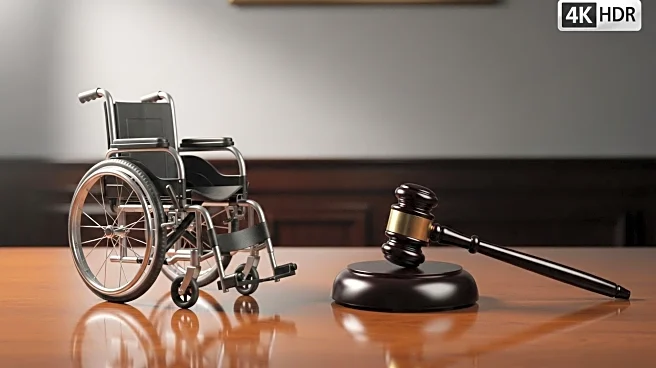What's Happening?
The U.S. Department of Justice has filed a lawsuit against Uber, alleging that the ride-sharing company discriminates against disabled passengers. The lawsuit claims that Uber drivers routinely refuse service to disabled individuals, including those with service animals, and impose unjust surcharges such as cleaning fees and cancellation fees. The DOJ argues that these practices violate the Americans with Disabilities Act (ADA), which prohibits discrimination by private transportation companies. Uber has denied the allegations, stating that it has a zero-tolerance policy for service denials and disagrees with the DOJ's claims.
Why It's Important?
This lawsuit underscores the ongoing challenges faced by disabled individuals in accessing transportation services. With over 28% of American adults having some form of disability, ensuring equal access to services like Uber is crucial for their independence and participation in daily activities. The outcome of this case could set a precedent for how ride-sharing companies and other private transportation providers accommodate disabled passengers, potentially leading to broader changes in industry practices and increased regulatory scrutiny.
What's Next?
The DOJ is seeking a jury trial, as well as injunctive relief, monetary damages, and a civil penalty against Uber. If the court rules in favor of the DOJ, Uber may be required to implement significant changes to its policies and practices to ensure compliance with the ADA. This could include revising driver training programs, adjusting fee structures, and enhancing accessibility features. The case may also prompt other ride-sharing companies to proactively address similar issues to avoid legal challenges.









